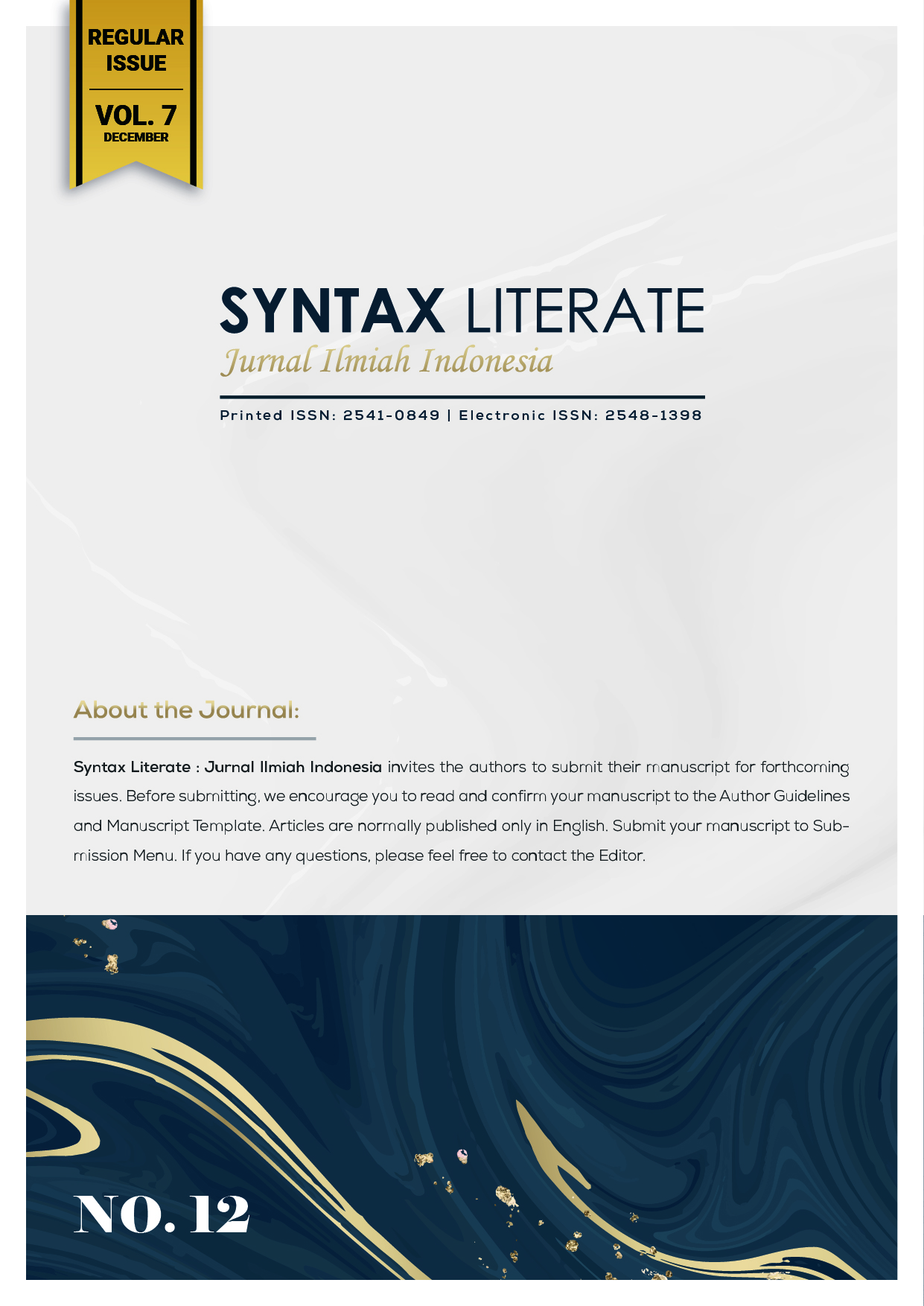Talent Management System : Challenges For Organizational Sustainability
Abstract
Business developments that are increasingly competitive and full of challenges and even uncertainty require organizations to adapt to changes for sustainability. Talent management is a series of organizational activities in attracting, retaining and developing talented people needed by the organization.This study presents the main concepts in the talent management system and the success factors for implementing a talent management system in organizations through a comprehensive and relevant literature review. The results of this study are expected to be considered by organizations in managing talent effectively.
Downloads
References
Borkowski, Nancy, & Meese, Katherine A. (2020). Organizational Behavior In Health Care. Jones & Bartlett Learning.
Cheese, Peter, Thomas, Robert J., & Craig, Elizabeth. (2007). The Talent Powered Organization: Strategies For Globalization, Talent Management And High Performance. Kogan Page Publishers.
Day, George S. (1994). The Capabilities Of Market-Driven Organizations. Journal Of Marketing, 58(4), 37–52.
Egerová, Dana, Eger, LudvÃk, & Jirincova, M. (2013). Integrated Talent Management. Challenge And Future For Organizations In Visegrad Countries. NAVA, Czech Republic, Plzeň.
Elsharnouby, Tamer H., & Elbanna, Said. (2021). Change Or Perish: Examining The Role Of Human Capital And Dynamic Marketing Capabilities In The Hospitality Sector. Tourism Management, 82, 104184.
Farndale, Elaine, E. Beijer, Susanne, JPM Van Veldhoven, Marc, Kelliher, Clare, & Hope-Hailey, Veronica. (2014). Work And Organisation Engagement: Aligning Research And Practice. Journal Of Organizational Effectiveness: People And Performance, 1(2), 157–176.
Fatima, Hira. (2011). Does Employee Retention Affect Organizational Competence. Industrial Engineering Letters, 1(1), 24–39.
Gallardo-Gallardo, Eva, Thunnissen, Marian, & Scullion, Hugh. (2020). Talent Management: Context Matters. The International Journal Of Human Resource Management, Vol. 31, Pp. 457–473. Taylor & Francis.
Mccracken, Martin, Currie, Denise, & Harrison, Jeanette. (2016). Understanding Graduate Recruitment, Development And Retention For The Enhancement Of Talent Management: Sharpening ‘The Edge’of Graduate Talent. The International Journal Of Human Resource Management, 27(22), 2727–2752.
Michael, Armstrong. (2009). Armstrong’s Handbook Of Human Resource Management Practice. Kogan Page.
Minbaeva, Dana B. (2018). Building Credible Human Capital Analytics For Organizational Competitive Advantage. Human Resource Management, 57(3), 701–713.
Priyadarshi, Pushpendra. (2011). Employer Brand Image As Predictor Of Employee Satisfaction, Affective Commitment & Turnover. Indian Journal Of Industrial Relations, 510–522.
Pucciarelli, Francesca, & Kaplan, Andreas. (2016). Competition And Strategy In Higher Education: Managing Complexity And Uncertainty. Business Horizons, 59(3), 311–320.
Silzer, Rob, & Dowell, Ben E. (2009). Strategy-Driven Talent Management: A Leadership Imperative (Vol. 28). John Wiley & Sons.
Copyright (c) 2022 Anjar Sulistyorini

This work is licensed under a Creative Commons Attribution-ShareAlike 4.0 International License.











